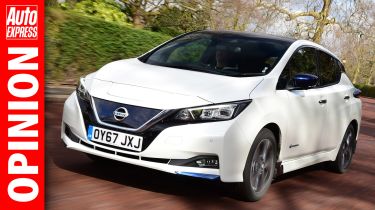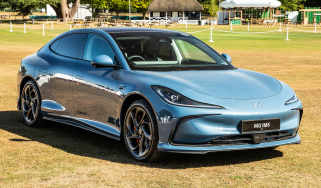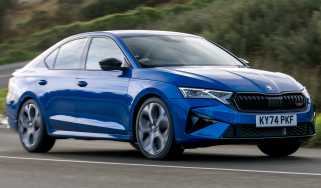‘In the big debate on the future of cars we must remember that perpetual motion does not exist’
Our consumer editor thinks that in debates about what our vehicles run on, the simple laws of physics have been forgotten

The pause, if not the reset button, has been pressed on our world, and it is no exaggeration to say that coronavirus - at least in the medium term - has changed everything.
Transport, a topic that was hovering near the tops of agendas even before this ‘situation’ hit, has seen significant alterations. Buses and trains are running greatly reduced services, for example, leading to discussions around how people who rely on public transport will get to work while maintaining social distancing.
Other developments include accelerated and expanded e-scooter trials; some local authorities have closed roads to cars in order to encourage more walking or cycling; and Transport for London has increased the Congestion Charge, both in price and hours of operation.
These tensions pull us in opposing directions; on the one hand, don’t take the bus or train - even the Prime Minister asked us to use our cars instead. On the other hand, we’ve made it more expensive to drive into the Capital, and harder to get around some city streets in a car.
But if you ignore these contradictions and look at the bare statistics, it’s clear that the car remains king. Government data shows 68 per cent of us drive to work, with just 17 per cent taking buses and trains. Of the 808 billion passenger kilometres covered last year, 83 per cent of these were done by cars, vans and taxis. Need more proof? There are 35 million cars in the UK - more than one for every household.
Whenever cars are discussed by Government ministers and local authorities, it’s rare to find a conversation that does not involve electrification. And, with sales of new cars with any kind of petrol or diesel engine set to be banned from 2035 - or earlier “if feasible” - it’s clear huge changes are afoot.
I love a good EV; they’re far more relaxing to drive in town than cars with an engine, and knowing you can pilot them without pumping out exhaust fumes is clearly a positive. But we need to remember that electric cars are no panacea, no magic bullet.
This is because even leaving aside individual issues like the extra expense of EVs, the ethical sourcing of battery materials, the particulate matter generated by tyre and brake wear, or how people with no off-street parking will charge them conveniently, we must remember the first law of thermodynamics: energy cannot be created or destroyed, only changed from one state to another.
Whenever you change energy from one state to another, you lose some and create waste. In a car, you convert the chemical energy in petrol, diesel or batteries into kinetic energy, which turns the car’s wheels. A fossil-fuel car converts about 30 per cent of the energy from its fuel into motion, wasting the rest in exhaust fumes, frictional and heat losses from the engine, and via other routes. An EV is much more efficient, converting roughly 80 per cent of the electricity in its batteries into moving the car, wasting, and polluting, far less on the road.
But we need to look further up the energy chain. Oil refineries require huge amounts of energy to run, for example, while the power stations that provide the juice for EVs also pollute. While renewable energy was the UK’s largest source of electricity last year, even wind turbines and solar panels require energy to build, transport, install and maintain, proving once again that you don’t get something for nothing when it comes to changing energy states.
What’s the point of all this? Quite simply, that if people want to get around using powered transport, there will always be waste, always pollution. Heck, even if we walked everywhere, we would still be breathing out carbon dioxide and wearing out shoe rubber as we did so.
Discussions around cars and all other forms of transport need to recognise these simple facts, and we must not be blind to the basic principles of physics. Eliminating pollution and energy waste is impossible - our focus will only ever be on reducing these losses, and managing them so they impact people and our planet as little as possible.
Electric cars are clearly key to this, but let’s not pretend they’re perfectly clean, and let’s not demonise the 98 per cent of vehicles that still use petrol or diesel; these cars, vans, buses and trucks have been fundamental to our economic and societal growth over the last century, and will continue to be key for some time - not least when no viable electric alternatives currently exist for many conventional machines.
We’ve had a taste of stopping our economy and our freedom of movement with the coronavirus lockdown, and I think most of us are keen to get going again. Cars will clearly be key to this, and we shouldn’t be made to feel guilty for driving them.
Do you agree with Hugo? Let us know your thoughts in the comments section below...
Find a car with the experts




